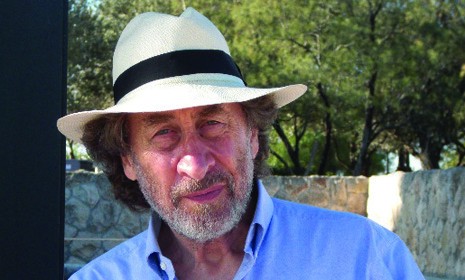Howard Jacobson's 5 favorite literary heroines
The Man Booker Prize-winning author recommends books by Jane Austen, Charles Dickens and Leo Tolstoy

A free daily email with the biggest news stories of the day – and the best features from TheWeek.com
You are now subscribed
Your newsletter sign-up was successful
Persuasion by Jane Austen (Dover, $2.50). I suffer from heroine addiction. The novels that moved me most as a young man were always about women in whom the desire to be treated justly, to be acknowledged, and to find fulfillment in love burns like a fire, and they remain my favorites to this day. Jane Austen possesses the power to make you feel as you read that nothing else matters in the world but the happiness of her heroines. Anne Elliot's happiness hangs by a thread in Persuasion, and the reader knows no peace until it is secured.
Jane Eyre by Charlotte Brontë (Dover, $3.50). Jane Eyre ranks at the top among all 19th-century English heroines. I've recently seen Cary Fukunaga's new film adaptation, and was reminded how passionately principled, articulate, and marvelously angry this novel is.
Middlemarch by George Eliot (Signet, $8). Whatever conventional fulfillment she finds, Dorothea Brooke's intellectual and moral restlessness remains ungratified. Eliot's book is a towering tragedy of frustration, in which individual ambition is forever stifled by the small-mindedness of society.
The Week
Escape your echo chamber. Get the facts behind the news, plus analysis from multiple perspectives.

Sign up for The Week's Free Newsletters
From our morning news briefing to a weekly Good News Newsletter, get the best of The Week delivered directly to your inbox.
From our morning news briefing to a weekly Good News Newsletter, get the best of The Week delivered directly to your inbox.
Little Dorrit by Charles Dickens (Modern Library, $10). Dickens' novel about a girl who grew up in debtors prison is funnier than Middlemarch but just as searching. It's another all-encompassing narrative — about the fragility of happiness and about modest goodness seeking to stay afloat in a sea of folly, cynicism, faintheartedness, and greed.
Anna Karenina by Leo Tolstoy (Dover, $5). The great novel of the senses and the heart that no other 19th-century novelist quite managed to write. That Tolstoy himself set out to write a moral tract warning against adultery only goes to prove D.H. Lawrence's dictum: Never trust the teller, trust the tale. Or, to put it another way, if it's truth you want, then go to art, not religion or ideology.
— Howard Jacobson is the author of 11 novels, including The Finkler Question, which last year won Britain's Man Booker Prize.
A free daily email with the biggest news stories of the day – and the best features from TheWeek.com
-
 Political cartoons for February 20
Political cartoons for February 20Cartoons Friday’s political cartoons include just the ice, winter games, and more
-
 Sepsis ‘breakthrough’: the world’s first targeted treatment?
Sepsis ‘breakthrough’: the world’s first targeted treatment?The Explainer New drug could reverse effects of sepsis, rather than trying to treat infection with antibiotics
-
 James Van Der Beek obituary: fresh-faced Dawson’s Creek star
James Van Der Beek obituary: fresh-faced Dawson’s Creek starIn The Spotlight Van Der Beek fronted one of the most successful teen dramas of the 90s – but his Dawson fame proved a double-edged sword